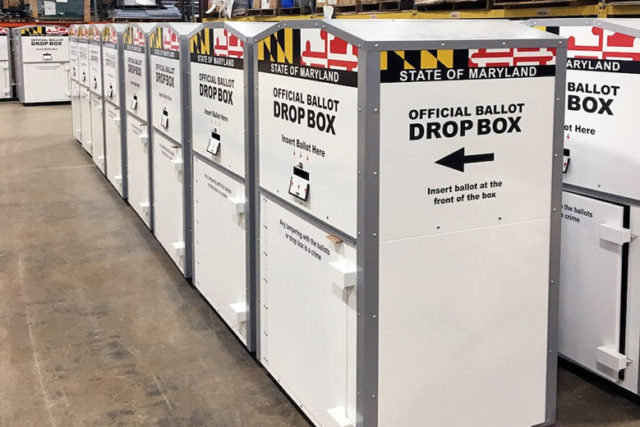The 2020 presidential election felt surreal. U.S. elections typically end with certainty and acceptance as a new president is inaugurated and a new phase of American political life opens.
Post-election disputes such as the one we’ve just lived through are rare, thanks to the stabilizing influence of the Electoral College. Why, then, are so many now calling for an end to the system?
We risk biting the hand that feeds us.
Admittedly, the Electoral College is badly misunderstood, and a difficult election just adds fuel to the fire. Too many Americans have spent a lifetime hearing that the Founders were elitist, White men who didn’t trust the people to choose a president. They’ve heard the Electoral College described as outdated and archaic, a system rendered irrelevant by improved communications and technology.
Such positions reflect misunderstanding as to the Founders’ intent. Americans can’t somehow “outgrow” the Electoral College.
The Founders were students of history. They understood the imperfections of human nature. They knew that humans are fallible and that power corrupts. Ambition, selfishness and greed are constant dangers. Simple democracies are unreliable for all these reasons.
“Democracy never lasts long,” President John Adams concluded. “It soon wastes, exhausts and murders itself. There never was a democracy yet that did not commit suicide.”
Such statements have led some to believe that the Founders were untrusting elitists, yet the truth is that the Founders didn’t trust anyone.
Congress isn’t completely trustworthy, nor is the president. The national government can’t be trusted, but neither can the states. Delegates at the Constitutional Convention discussed the dangers of emotional mobs, but they also spoke of elected officials who abuse power.
The Founders knew that they could not completely trust anyone. When push came to shove, the “powerful men gathered in Independence Hall, the most likely candidates for the Senate and the presidency, continued to fear themselves,” historian Carol Berkin concludes.
How unsurprising, then, that our Constitution deliberately disperses power across many people and entities. Nationally, power is divided among Congress, the president and the judiciary. This national power is further checked by the division of power between the national government and the state governments. At every level, some power is placed in elected officials and some power is placed in the people.
The Electoral College is part of this system of checks and balances, intended to check tyranny. We can no more outgrow it than we can create a world full of perfect human beings.
America’s unique presidential system has served Americans, behind the scenes, for centuries. One important benefit of the Electoral College was surely felt this year: The state-by-state election process isolates voting problems to one or a handful of states. This decentralized process ultimately makes it harder to steal elections.
This is obviously true for those relieved that former President Donald Trump did not succeed in his efforts, but it remains just as true for those worried that the election was stolen.
Can you imagine the scene if we’d had to fight over vote tallies in every precinct in every state, nationwide this year? But for the Electoral College, states might still be counting votes, trying to come to an answer. Instead, the country was given a finite number of problems to solve before moving on to a certain election outcome.
The country also identified potential problems in cities such as Detroit and Philadelphia. This was not inevitable. But for the Electoral College, Americans would have seen a 7-million vote margin and never stopped for a harder look.
Specifically because of the Electoral College, several states know which problem spots they need to focus on for the next four years.
The Electoral College has other benefits, too. It encourages coalition-building, and it motivates candidates to reach out to a wide variety of voters. It penalizes those who rely on isolated pockets of support in one region or one state or among voters in one special interest group.
If this is true, then why is everyone so divided now? No one seems interested in building diverse coalitions, as the Electoral College requires.
The good news is that we’ve been here before, in the years after the Civil War. Then, too, the country was divided and angry. Electoral maps looked remarkably similar, year after year. There were even two elections in which the electoral vote did not match the winner of the recorded national popular vote. Such an angry and destructive atmosphere is always difficult to reverse, but the incentives inherent in the Electoral College helped the nation, forcing positive change.
Consider the political landscape in the late 1800s: Democrats were strong in the South, but southern electoral votes were insufficient to win. By contrast, Republicans had enough electoral votes to win the White House, but just barely. Ultimately, both sides had incentives to reach a hand across the political aisle. Over time, the divide was healed. Soon, presidents such as Calvin Coolidge and Franklin D. Roosevelt were winning in landslides.
The situation today is the same. The first party to learn from history and to focus on coalition-building will begin winning in electoral landslides. In a country as large and diverse as our own, such incentives are healthy and necessary if we are to regain our footing.






